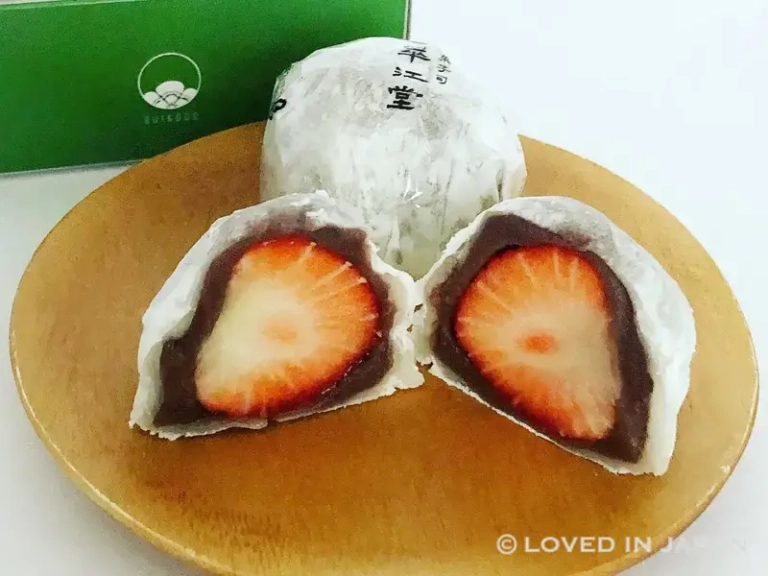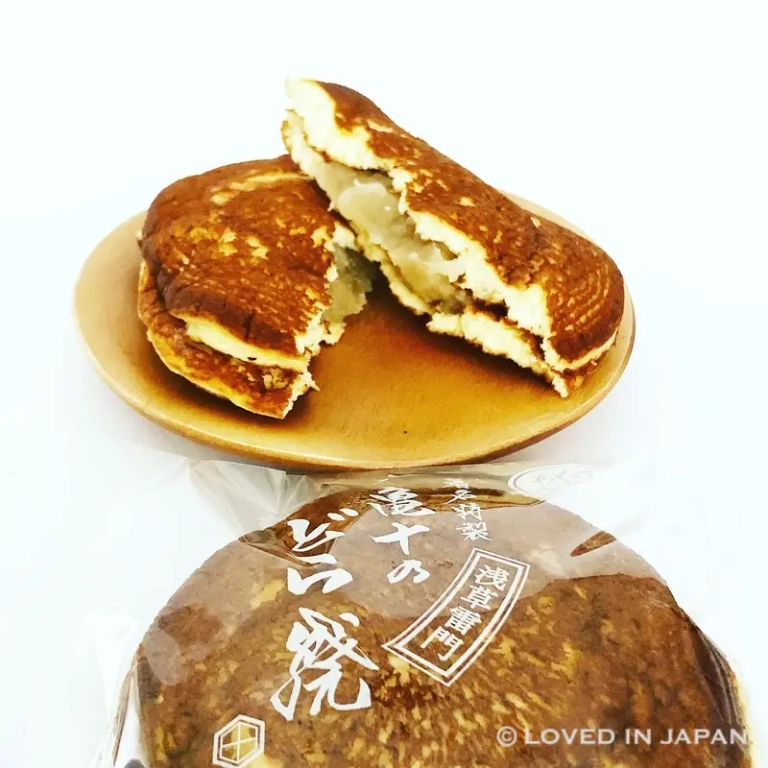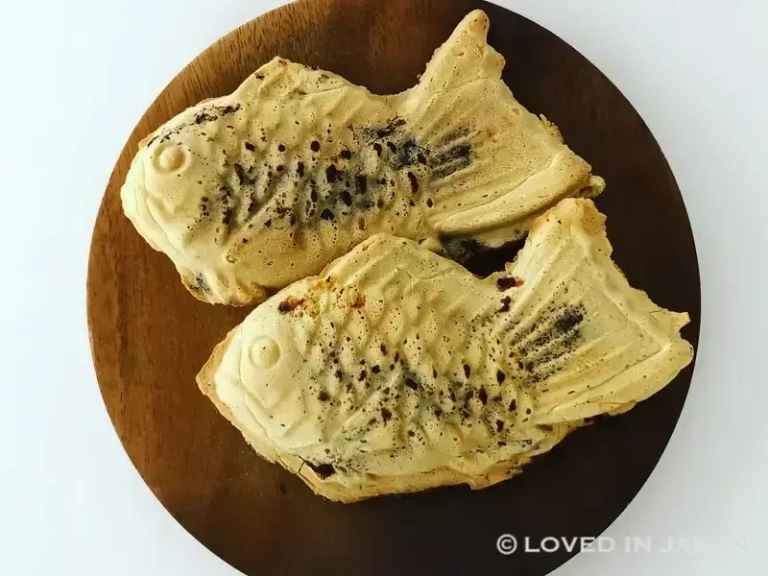Why Mizuho’s Mame-Daifuku Is Worth the Trip to Harajuku
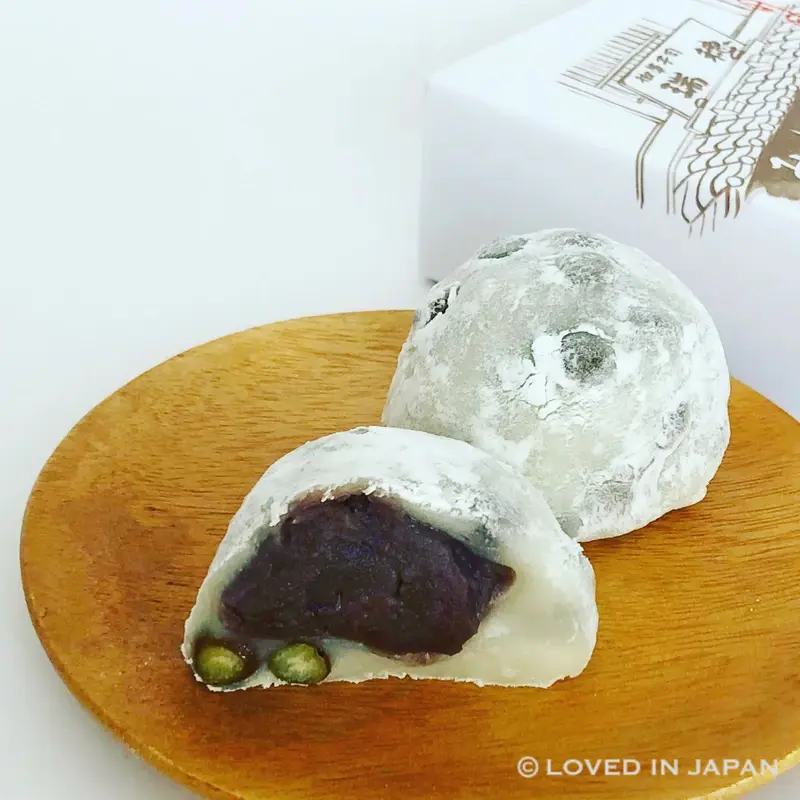
In Harajuku, Tokyo, “Mizuho” is renowned for its mame-daifuku (rice cakes filled with sweet bean paste), often considered among the top three mame-daifuku in the city. They’re so popular that it’s not uncommon for them to sell out by late morning.
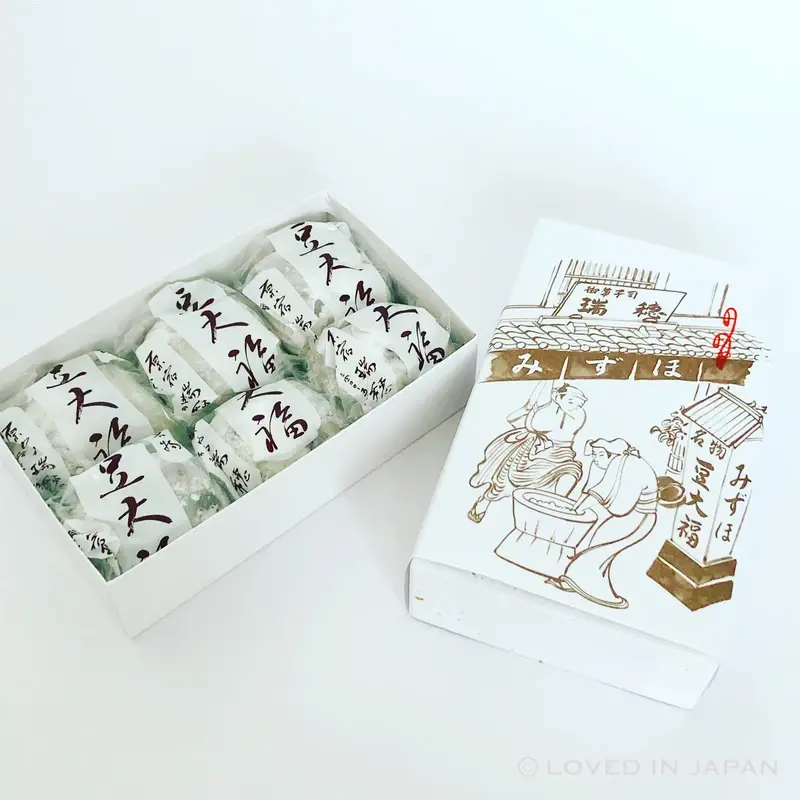
Recognized as one of the “Three Great Mame-Daifuku of Tokyo” — a title given to the city’s most famous bean-filled rice cakes — Mizuho’s mame-daifuku are a long-standing local favorite.
Take one bite of their signature “Special Mame-Daifuku,” and you’ll immediately understand why people of all ages keep coming back.
In this article, we’ll take a closer look at Mizuho’s beloved mame-daifuku, exploring their flavor, price, shelf life, and store details.
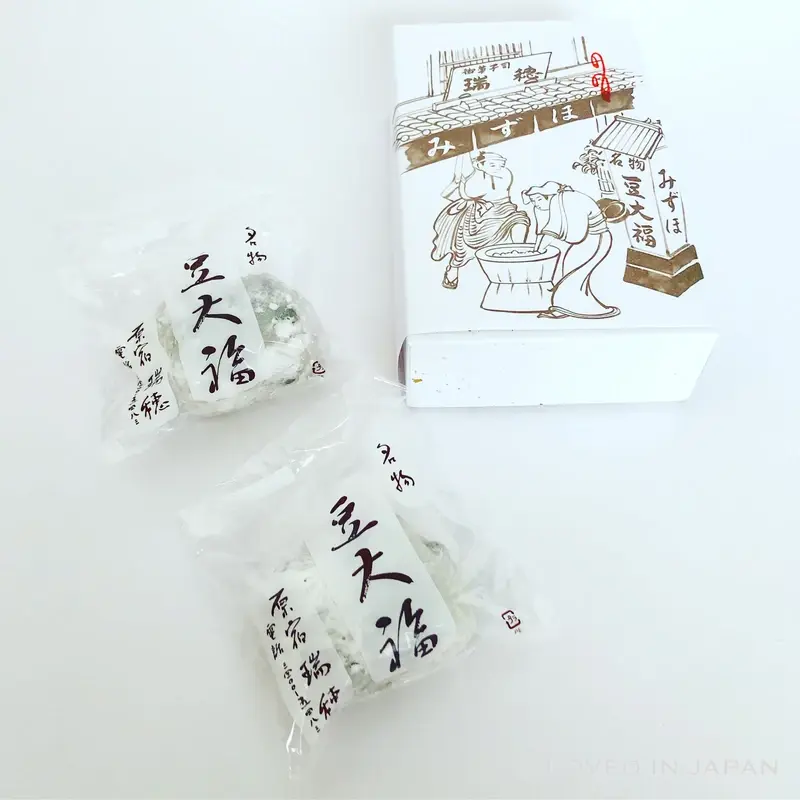
When you hold a Mizuho mame-daifuku, the first thing you notice is its pleasantly substantial weight, followed by the soft, tender texture of the mochi.
The thick layer of mochi is dotted with beans that retain a satisfying bite, and with your first taste, you notice the refined, subtle saltiness of both the mochi and beans.
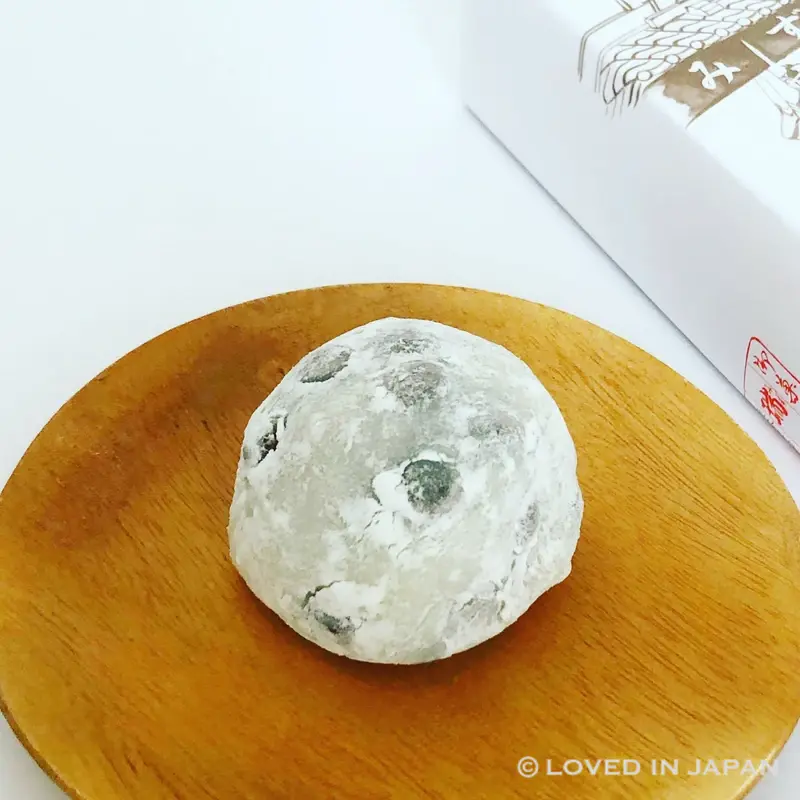
After the beans’ gentle pop, the smooth, elegant sweetness of the koshian (silky red bean paste) spreads softly across your palate.
The delicate saltiness of the mochi and beans beautifully enhances the sweetness of the koshian, creating a harmony so exquisite you’ll want the flavor to linger.

Mizuho’s mame-daifuku is fresh and moist, with koshian so fine and velvety it melts effortlessly in your mouth, releasing the rich aroma and flavor of azuki beans.
It’s no exaggeration to say that the anko (red bean paste) takes center stage. The firm yet tender beans add a delightful, popping texture with each bite, while the soft mochi and smooth, rich anko come together in perfect harmony.
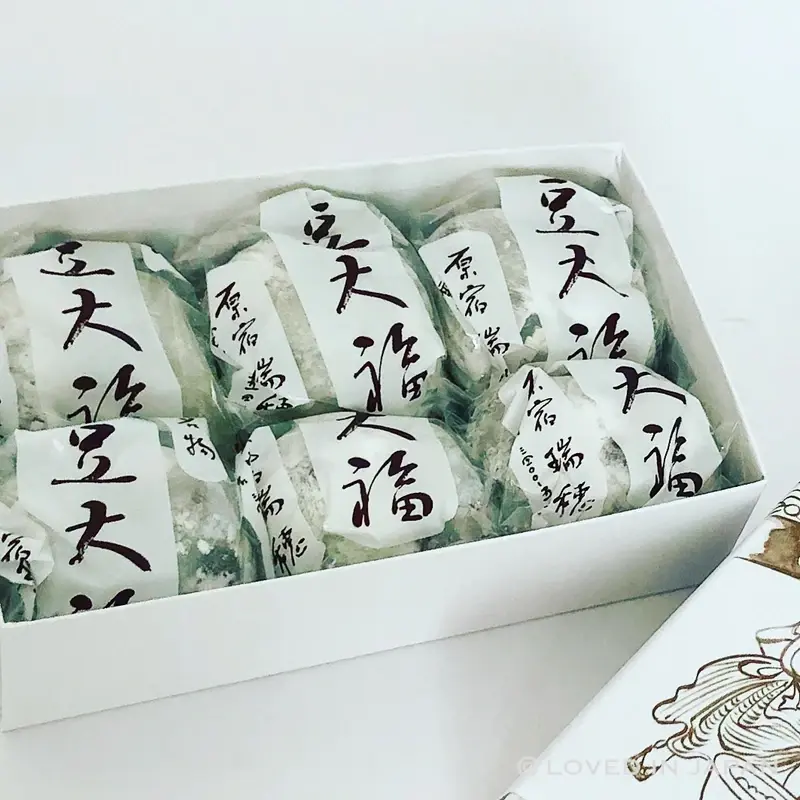
Each mame-daifuku is generously sized at about 6 cm in diameter, making it wonderfully satisfying to enjoy just one. Yet the refined sweetness—perfectly balanced with a touch of salt—will have you reaching for another.
You can purchase them individually at the store or choose from a variety of boxed sets:
- 6 pieces – 2,020 yen (tax included)
- 8 pieces – 2,660 yen (tax included)
- 10 pieces – 3,270 yen (tax included)
- 12 pieces – 3,880 yen (tax included)
- 15 pieces – 4,800 yen (tax included)
- 20 pieces – 6,320 yen (tax included)
- 25 pieces – 7,840 yen (tax included)
- 30 pieces – 9,390 yen (tax included)
While these boxed sets are perfect for enjoying in larger quantities, keep in mind that they must be eaten on the same day—making them not suitable for taking overseas as souvenirs.
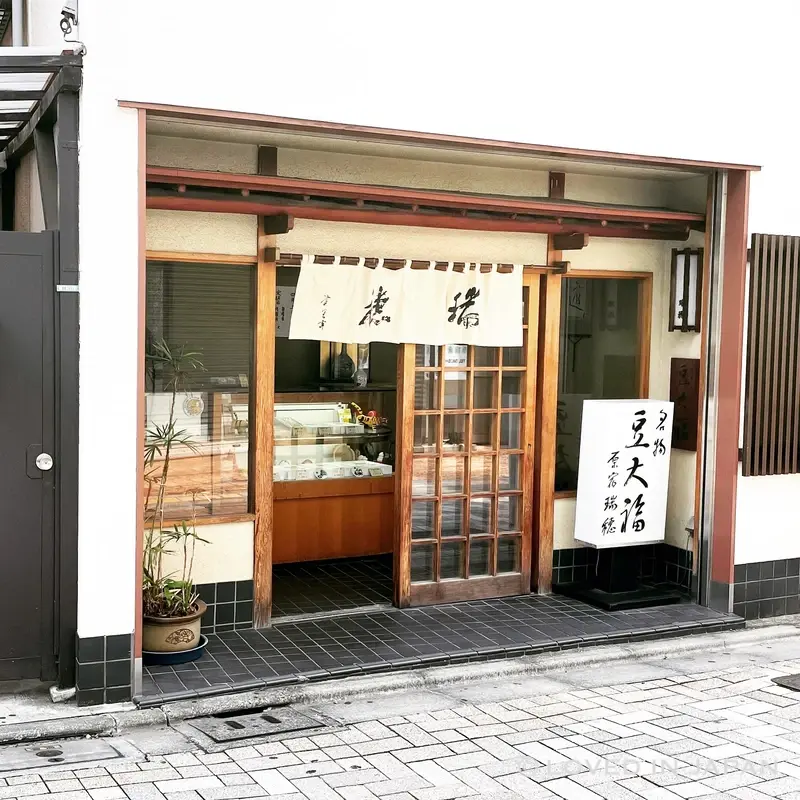
Mizuho enjoys a prime location, only a 3-minute walk from the intersection of Omotesando and Meiji-dori.
If you’re traveling by subway, the most convenient station is Meiji-Jingumae on the Tokyo Metro Chiyoda and Fukutoshin Lines. From Omotesando Station, served by the Ginza and Hanzomon Lines, it’s about a 7–8 minute walk.

With its white noren curtain and warm, inviting exterior, Mizuho is easy to spot—especially since there’s often a line out front. If you’re in the area, you’ll have no trouble finding it.
Once they sell out, the shop closes for the day—sometimes as early as the afternoon. To avoid disappointment, it’s best to visit in the morning.
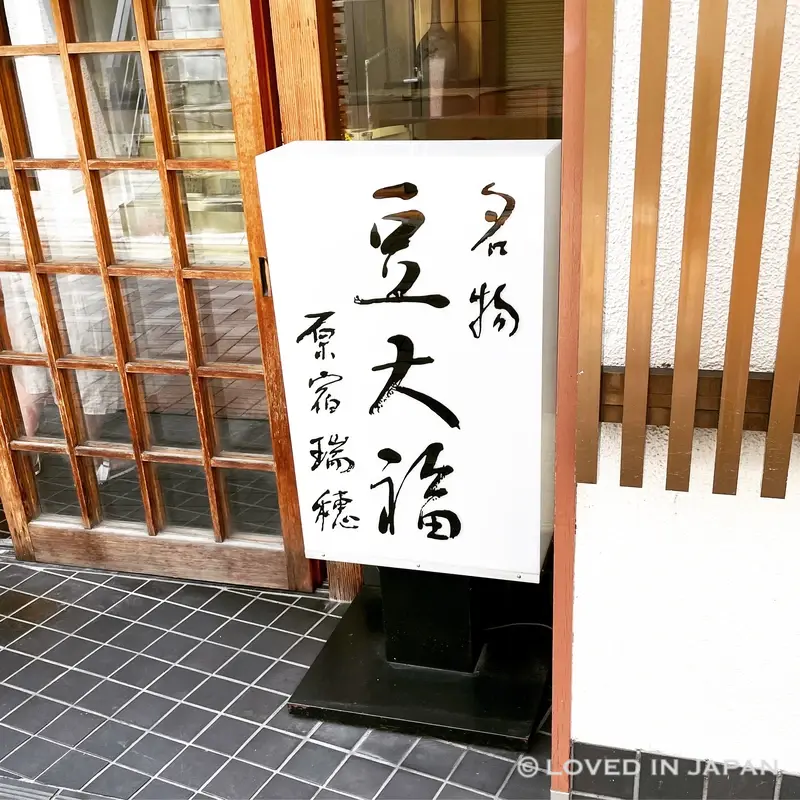
Mizuho has only one location in Harajuku. There are no branches in department stores, so their mame-daifuku are available only here.

